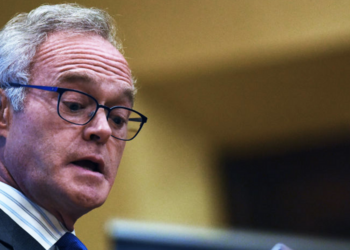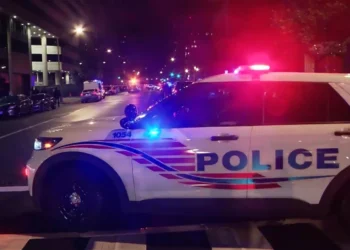Craig Mazin might be the most libertarian showrunner working in television today. Chernobyl, his breakout miniseries, was a harrowing indictment of centralized incompetence. And The Last of Us, at least in its first season, revolved around the corrupting perils of consolidated power, culminating in one man’s decision to protect a child rather than submit to the demands of a militant pseudo-science collective. At this rate, I wouldn’t have been surprised if Mazin’s next project was an Ayn Rand adaptation.
Which is what makes his latest work, Season 2 of The Last of Us, so baffling. What began as one of my favorite shows of 2023 has returned in the form of a plodding, tonally inconsistent, and ideologically confused sequel, one that trades emotional nuance for teenage melodrama and buries its thematic core beneath a mountain of narrative missteps.
Gone is the dynamic that carried the original season: Joel, the grizzled mercenary played with weary conviction by Pedro Pascal, and Ellie, the naive but spirited and resilient child brought to life by Bella Ramsey. Their relationship was the show’s heartbeat, the push-pull of protector and pupil, forged through necessity and tragedy. Their bond felt earned. And, critically, their bond carried the story’s moral stakes.
Season 2 promptly discards all of this. Ellie, now 19, overpowers a man twice her size and heads off to Seattle with her pregnant girlfriend, Dina (Isabela Merced), on a new quest. It’s a wildly implausible shift. Representation and diversity are luxuries of stable societies, not ones on the verge of extinction and overrun by parasitic fungus monsters. The idea that Dina (pregnant) and Ellie (reckless) could not only survive the trip to Seattle but then navigate a city teeming with violent factions and infected strains credulity past its breaking point.
But it’s not just realism that breaks down. The show’s deeper failure lies in its refusal to wrestle with the moral ambiguity that once defined it. Joel’s choice at the end of Season 1, saving Ellie from the Fireflies, is never granted the ethical weight it deserves. The narrative all but condemns him, refusing to acknowledge the obvious: There was no guarantee her death would yield a cure. And even if it had, what was the plan? Mass-produce a vaccine in the ruins of society and hand-deliver it to every outpost on foot? Instead, the Fireflies, who thought killing a child on a hunch was good science, are framed as noble martyrs, and Joel as a tragic villain.
That rejection of moral complexity sets the tone for the rest of the season. Rather than build on the difficult questions of Season 1, the show defaults to clichés. At one point, Dina recounts: “I told my mom I liked both girls and boys, but my mom said I could only like boys.” Though the first season’s lauded “Long, Long Time” episode centered on a gay couple, it was a poignant and organic tale about hope and love in the bleakest circumstances. In contrast, Season 2’s contrived, tortured screenwriting shoehorns in homophobia to score political points.
This tonal confusion infects nearly every scene. Dina soon reveals she’s pregnant with her ex-boyfriend’s child. Ellie responds, without irony, “I’m gonna be a dad.” It’s a line so emotionally discordant it borders on sociopathy. Most people don’t react to finding out their crush is pregnant with someone else’s child by grinning like they’ve just won a raffle.
The writing also lurches between trauma and comedy with no regard for rhythm. Dina holds Ellie at gunpoint for what feels like an entire night; then they’re kissing. She doubts Ellie’s immunity, and then shrugs it off after one conversation. “Oh yeah, that’s fine,” she says, as if Ellie had just admitted to occasionally lying about having a nut allergy.
This tonal instability extends to the show’s baffling musical detours. In episode four, Ellie picks up a guitar and performs a full-length cover of A-ha’s “Take on Me” for Dina. In another episode, Joel serenades Ellie with an entire Pearl Jam song. It feels as if Mazin had only written enough script for half a season and padded the rest with a makeshift apocalypse cabaret.
Bella Ramsey, for her part, was a strong choice for Season 1 — vulnerable, witty, emotionally sharp. But the older version of Ellie demands a gravitas she can’t quite deliver. Her performance feels stuck between snarky and irritable and never quite finds the emotional register needed to carry the season’s weight.
(POST-)APOCALYPTIC VENGEANCE AND JUSTICE IN ‘THE LAST OF US’ SEASON TWO
There are glimmers of the bigger ideas Mazin once handled so well: the conflict between the Washington Liberation Front and the primitivist Scars, the notion that even on the brink of extinction, humans will factionalize and war against each other. But instead of exploring that existential rot, we get exactly one scene in which WLF leader Isaac (Jeffrey Wright) tortures a prisoner while delivering a monologue about Mauviel copper cookware. As an owner of said pans, I can only say: This was the most disrespectful use of a $400 sauté pan I’ve ever seen.
The tragedy of Season 2 is not just that it stumbles, but that it jettisons the foundation on which it was built. It wants to retain the brutal realism of its setting while also indulging in the sanitized beats of a coming-of-age Netflix drama. It wants moral complexity and acoustic serenades. It wants grief and goofy banter. It wants to be prestige television while playing by the emotional logic of a CW show. The result is a series that no longer understands itself.
Harry Khachatrian (@Harry1T6) is a film critic for the Washington Examiner’s Beltway Confidential blog. He is a software engineer, holds an MBA from the University of Toronto, and writes about wine at BetweenBottles.com.
















